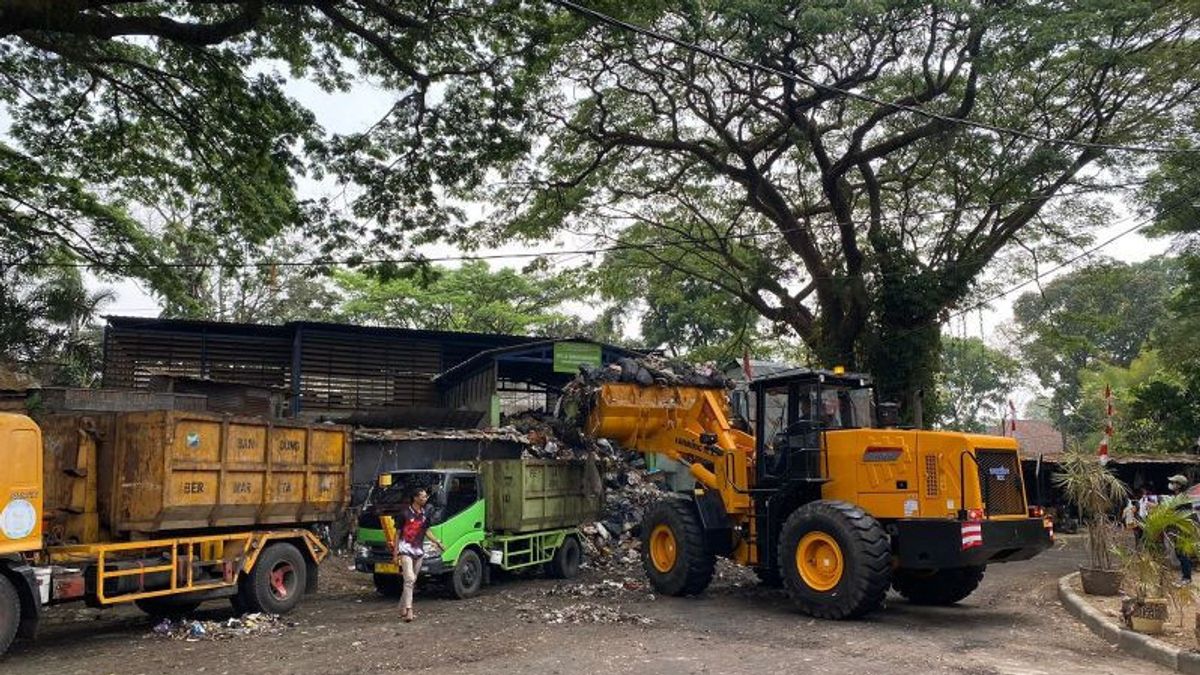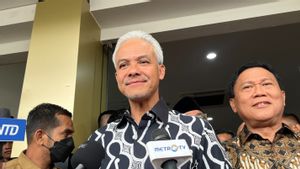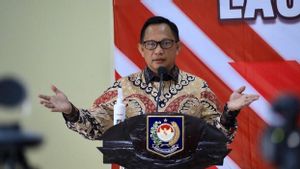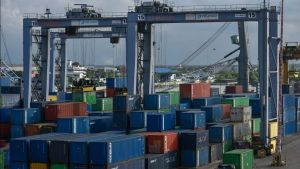JAKARTA - The volume of waste from the city of Bandung that goes to the Sarimukti Final Processing Site (TPA) in West Bandung Regency, has decreased from around 1,300 tons per day to an average of 400 tons per day.
The Regional Secretary (Sekda) of Bandung City, Ema Sumarna, said that the decrease in the volume of waste that entered the Sarimukti TPA could not be separated from the collaboration of the community, businessmen, academics, health workers, and the city government in overcoming the waste problem in the City of Kembang.
Thanks to efforts to sort and processing waste, the volume of waste in most temporary waste shelters or polling stations in the city of Bandung no longer exceeds the capacity and waste that must be transported to the TPA has decreased significantly.
"Currently, from 135 polling stations, the remaining five polling stations are still overloaded. Now we are guarding the polling stations, we can only receive residual waste," said Ema in Bandung, West Java (West Java), Thursday, November 23, as reported by Antara.
In addition to lowering the volume of waste that must be transported to the Sarimukti TPA, the Bandung City Government is gradually trying to transport the remaining garbage that was previously unable to be brought to the TPA due to the fire that has occurred since August 19, 2023.
According to city government data, waste from the city of Bandung, which during the waste emergency period could not be transported to the Sarimukti TPA, had decreased from 54,000 tons to around 15,000 tons.
"This waste must still be thrown away. We have asked for additional ritace and the time is also from 08.00-18.00 WIB because this must be taken care of first," said Ema.
VOIR éGALEMENT:
He revealed the importance of active community participation in waste management efforts in the city of Bandung.
"We continue to intensify the change in how to process waste from upstream. We move according to the cluster, because this cannot be completed by the government alone, especially there must be massive assistance from the community," he said.
"Now there is a movement from the public who realizes that waste must be managed independently. We also continue to provide the carrying capacity of infrastructure, including its management," he added.
In order to accelerate the handling of waste problems, he explained, the Bandung City Government has also rolled out a dense program of organic waste processing works.
According to him, as many as 600 officers were recruited to provide counseling regarding the handling and processing of waste in 151 urban villages in Bandung City.
With the efforts that have been carried out to overcome the waste problem from upstream to downstream, Ema is optimistic that the emergency status of waste in the city of Bandung can be revoked by the end of 2023.
The English, Chinese, Japanese, Arabic, and French versions are automatically generated by the AI. So there may still be inaccuracies in translating, please always see Indonesian as our main language. (system supported by DigitalSiber.id)
















